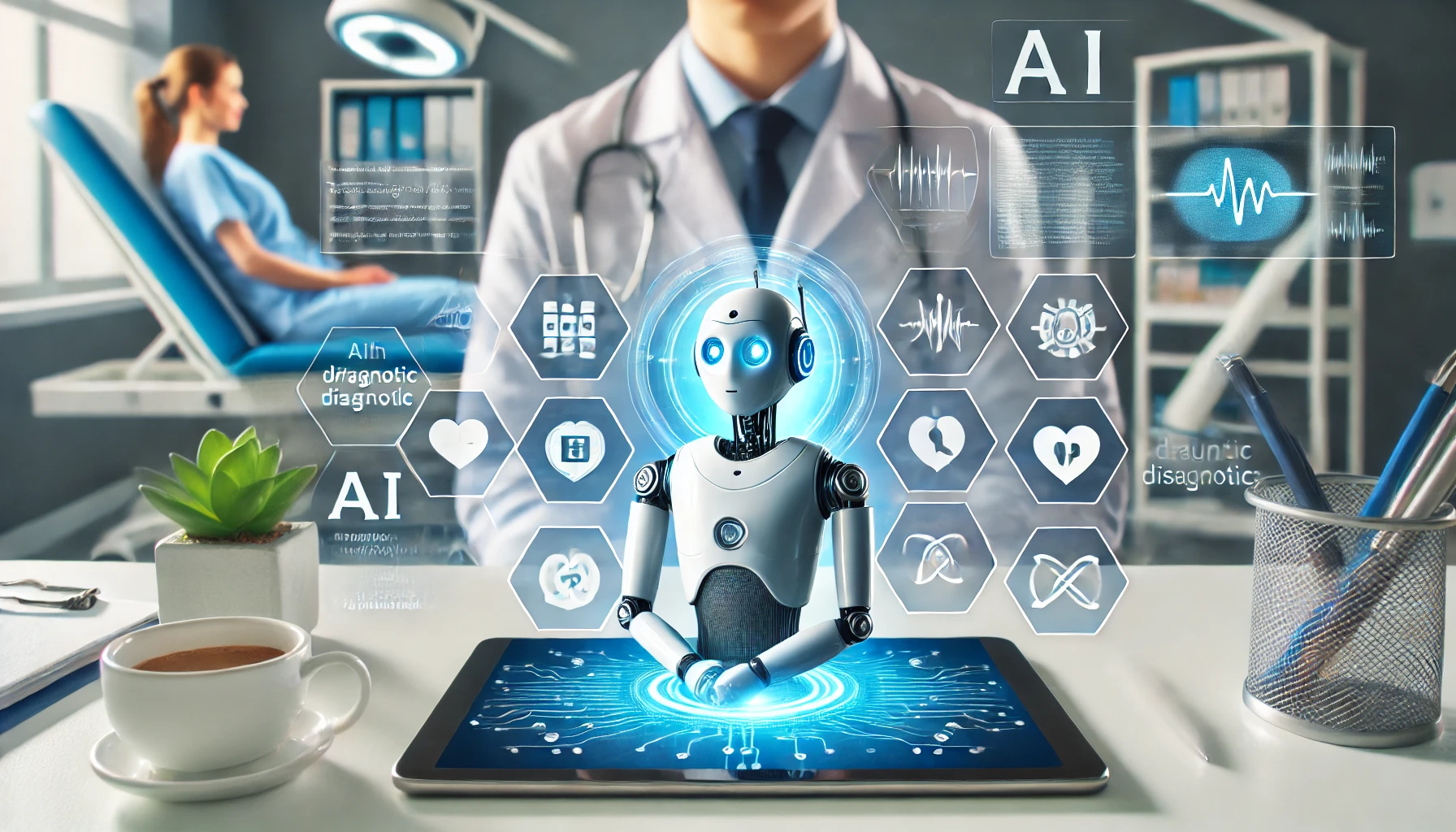Chatbots have made significant inroads into healthcare through artificial intelligence (AI), becoming one of the most exciting developments in the field. These AI-powered tools are revolutionizing the way healthcare providers deliver patient care by improving access to medical information, streamlining administrative tasks, and even offering basic diagnostic support. As healthcare organizations seek innovative ways to manage rising costs, patient demands, and workforce shortages, medical chatbots are quickly emerging as a key area of AI investment.
The Growing Importance of AI in Healthcare
The global healthcare AI market is expected to grow from $14.6 billion in 2023 to an estimated $102.7 billion by 2030, with a compound annual growth rate (CAGR) of over 34%, according to a report by MarketsandMarkets. This rapid expansion is driven by AI’s ability to automate routine tasks, enhance decision-making, and provide personalized care solutions. Medical chatbots, in particular, are one of the most prominent AI applications that are reshaping the patient experience.
What Are Medical Chatbots?
Medical chatbots are AI-powered software programs that interact with users via text or voice to provide healthcare information, advice, and support. These chatbots are designed to assist patients in managing their health by answering questions, scheduling appointments, providing medication reminders, and even offering symptom assessments based on user inputs. By integrating natural language processing (NLP) and machine learning, medical chatbots are becoming more intuitive, improving their ability to understand patient concerns and provide accurate responses.
Current Applications of Medical Chatbots
- Patient Triage and Symptom Assessment One of the most popular applications of medical chatbots is in patient triage and symptom assessment. Chatbots like Ada Health, Babylon Health, and Your.MD are capable of evaluating patient symptoms based on the information provided and recommending the next steps, such as visiting a doctor or taking over-the-counter medication. These chatbots use vast databases of medical knowledge to guide patients through their symptoms, helping them understand the urgency of their condition and whether they need to seek professional care. A 2022 study published in The Lancet Digital Health found that AI-driven chatbots can accurately assess symptoms in up to 90% of cases, making them a valuable tool for reducing unnecessary doctor visits and easing the burden on healthcare systems.
- Administrative Support Medical chatbots are also increasingly used to streamline administrative tasks, such as scheduling appointments, checking insurance eligibility, and answering frequently asked questions. These tasks can be time-consuming for healthcare staff, but chatbots can handle them with efficiency and accuracy. By automating these routine interactions, healthcare providers can focus more on delivering patient care rather than managing administrative duties.One study by McKinsey & Company estimates that healthcare providers could save up to 20% of their administrative costs by implementing AI-powered chatbots to handle tasks such as scheduling and patient inquiries.
- Medication Reminders and Chronic Disease Management For patients with chronic conditions, adherence to medication schedules and follow-up care is critical. Medical chatbots can send patients timely reminders to take medications, schedule follow-up appointments, or monitor vital signs like blood pressure or glucose levels. By integrating with electronic health records (EHRs) and wearable devices, chatbots can help ensure that patients stick to their care plans, which can lead to better health outcomes. Research from the Journal of Medical Internet Research suggests that chatbots can improve medication adherence by 50%, making them an effective tool in managing chronic diseases such as diabetes, hypertension, and heart disease.
- Mental Health Support Mental health chatbots are becoming increasingly popular as tools for providing support to individuals struggling with anxiety, depression, or other mental health issues. Chatbots like Woebot and Wysa offer evidence-based interventions like cognitive behavioral therapy (CBT) techniques to users, helping them manage stress and emotional well-being. While these chatbots are not replacements for professional therapy, they can offer an accessible and stigma-free option for individuals seeking immediate mental health support.A study published in JMIR Mental Health found that users who engaged with mental health chatbots experienced a reduction in symptoms of depression and anxiety, with many users reporting increased feelings of well-being and emotional resilience.
Future Prospects: AI-Powered Chatbots in Telemedicine
As telemedicine continues to grow in popularity, AI-powered medical chatbots are expected to play an even greater role in remote healthcare. These chatbots can act as the first point of contact for patients seeking virtual care, collecting essential data and preparing healthcare providers with key information before a telehealth consultation begins. Additionally, by automating patient follow-ups and monitoring ongoing health conditions, chatbots can enhance the continuity of care in the virtual space.
A report from Grand View Research predicts that the global telemedicine market will reach $396 billion by 2027, and chatbots are poised to be a central feature of these platforms, facilitating smoother communication between patients and providers while ensuring that care is more personalized and efficient.
Investment Trends in Medical Chatbots
The growing demand for AI-driven healthcare solutions has attracted significant investment in medical chatbot technology. Venture capital (VC) firms, private equity groups, and healthcare technology companies are increasingly funding startups that specialize in AI-based health chatbots. For instance, companies like Babylon Health have raised over $635 million in funding to expand their chatbot capabilities, while Ada Health secured $90 million in a Series B funding round to scale its global operations.
According to CB Insights, investments in healthcare AI startups, including those focused on chatbots, have surged by 67% in 2023 alone. This trend is expected to continue as healthcare providers look for innovative ways to manage the increasing complexity of patient care and reduce operational costs.
Challenges and Considerations
Despite the growing popularity of medical chatbots, there are still challenges to address. One key concern is data privacy and security. Since chatbots interact with sensitive patient information, ensuring that these platforms comply with regulations such as the Health Insurance Portability and Accountability Act (HIPAA) is crucial. Protecting patient data from potential breaches and maintaining trust in these technologies are essential for widespread adoption.
Moreover, while chatbots are improving in their ability to provide medical advice, they are not yet a substitute for the expertise of healthcare professionals. There are limitations to what AI can diagnose and recommend, especially in complex or emergency situations. Therefore, chatbots should be viewed as supplementary tools that assist healthcare providers, rather than replacing human judgment.
Medical chatbots represent a rapidly growing area of AI investment that is transforming the healthcare landscape. From symptom assessment and triage to administrative support and chronic disease management, these AI-driven tools are enhancing patient care while easing the workload of healthcare providers. As investment in this technology continues to grow, chatbots will likely play an increasingly integral role in both traditional and virtual healthcare settings.
While challenges remain, including data privacy concerns and the limitations of current AI models, the potential of medical chatbots to improve patient outcomes and streamline healthcare delivery is undeniable. As AI technology evolves, medical chatbots will undoubtedly become even more sophisticated, offering patients faster, more personalized, and more accessible healthcare solutions.




